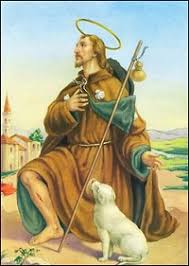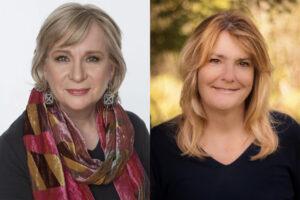By Karlie Flood
On September 15th, the Hudson River Coffee House in Albany hosted the bi-monthly “St. Rocco’s for the Dispossessed” reading. The September reading featured Mitch Manning, Julian Mostachetti, and Co-Editors of The Doris Billie Chernicoff and Tamas Panitz.
The first reader, Mitch Manning, teaches English at the University of Massachusetts, Boston. Manning founded No Infinite magazine, “a journal of poetry, art, and protest,” and edits poetry for CONSEQUENCE magazine, an international literary magazine that focuses on the consequences and culture of war. He taught poetry in Central China this past summer, and his poetry has been read in Southern Iraq as a part of the Boston to Bosnia project. Manning read his poem “Sacred Man,” a response to Fanny Howe’s “The Needle’s Eye,” which consists of a collection of poems that discusses the Boston Marathon bombers, mercy, and what it means to sentence children to a life in prison.
[Excerpt from “Sacred Man”]
“To save or be saved on the 751
Tomorrow the sun will disappear,
And the light through the window will be flat and empty, depthless;
I lie unsure where living and lying begins or ends,
‘Which persona will I put on today?
Whose clothes will I wear?’
This energy of bells ringing across the ease and gutters ask,
‘Who is our war lord of night? When will we go to battle?’
Corp ruins are instruments of invalids
Not scales of justice rendered in statues from myth.
Who has trust in a system that defies them?
Survival is not happiness,
Bare life is enough, say adjudicators of the state
All is fair beneath wig and robe,
Unless you’re naked and your head is shorn.”
University at Albany graduate student Julian Mostachetti read a “patchwork” of scenes from his ongoing novel (i), which depicts a world where both the weather and the people are growing strange. Hurricanes are reaching deep inland and a blizzard occurred on Halloween. At Flint Valley College, in Flint Valley, New York, a group of students get together weekly to debate the fate of the world and discuss politics, “a collective world-changing fiction.” “You can’t leave the way you came in,” Mostachetti begins. In (i), “the narrator feels trapped in his own head and feels isolated from people around him.” Mostachetti does not know yet which direction the novel is going in. With each revision, he looks at the project from a new angle; “the definition of what [(i)] is constantly changes,” he said. He “tried” to write his first novel when he was 12, although, he hopes “wherever it is, it’s burned.” When asked what advice he would give to younger writers, he said, “writing is a matter of putting the hours in. Too many writers sit around and wait to be inspired; if you hinge your creativity in the perfect moment, you’ll find it will never come. You will only have a bunch of potential stories. We feel like we have more time than we do. If you feel like you have that impulse, or something worth saying, go for it.”
An alumnus of Bard College and author of The Red Dress (published by Dr. Cicero books), Chernicoff wrote her most recent work Bronze as a series of responses regarding ancient bronze pieces after someone left a book about Ancient Chinese Bronze on her porch. She writes about daggers to bowls to figures; “I responded to them in language in a very abstract way; the gender pronouns and personal pronouns are very fluid,” Chernicoff said. Sometimes she is addressing the pieces, sometimes she is them, and sometimes she is gossiping about them.
“72”
At last, a house, but it won’t stand still.
It wriggles, and the teacups percuss
It rides and sets our hips in motion
Nothing we make is not alive
It lowers its horns, arches its foot
Look at the moon through the holes
What were we thinking?
Something so hard to claim or understand.
Chernicoff and Panitz are the editors of The Doris, a local magazine that focuses on new writing and translation.The homepage of the magazine says, “The Dorisis concerned with nothing but its content, which includes translation, fiction, non–fiction and reviews.”Manning called it “one of the best magazines coming out of the Northeast right now.” Panitz, also an alumni of Bard College and author of Blue Sun, Uncreated Mirror, and Upper Earth, read a number of original poems, including:
- Black crickets
in the night grass
lead me to other houses
in which I live.
- Fact of gold
under a lake of ink.
- What kind of secrets
pleasure me
in unattended relaxation,
the body’s own frequency,
- cities invisible
to motive, or motion
whirl through
industrial
angel ridden
earth, our corpses,
- Move the pen
until you drift off
words are approximate,
scaffolding,
just legible enough
to hold the door
until you’re in, safe.
- Now let the temple crash
behind you.
“I’m gonna leave
and never come back.”
We used to say as kids,
ever true to what we know.
The founders of St. Rocco’s Reading Group are Aimee Harrison, Alexis Bhagat, Alifair Skebe, Douglas Rothschild, Kenyatta “JP” Garcia, and Michael Peters. St. Rocco’s reading group began as a workshop in September 2016 and has expanded into a monthly—now bimonthly—reading group for writers in the Capital Region. While the writing workshops are closed, the reading sessions are open to the public. They found a connection to Saint Rocco because of his bravery and perseverance despite being falsely accused and imprisoned and admired his choice to show his scar in his portraits. According to a non-profit organization that feeds the sick in Saint Rocco’s name, “the statue of Saint Rocco is considered unique among theologians because of his pose. It is most unusual because it depicts him with his left hand pointing to an open sore on his left leg. Few images of saints expose any afflictions or handicaps” (Saint Rocco’s Feast). Similarly, poets are known to express their emotions and work through traumas by writing. When describing the goal of the group, Rothschild stated, “there is no real center of poetry in Albany. We are all a little dispossessed.”
St. Rocco’s next event will be at St. Anthony’s Church from 7-9 p.m. on September 22nd, and will be broadcasted on 107.3 FM. For more information about St. Rocco’s Reading Group and its founders, click here.



